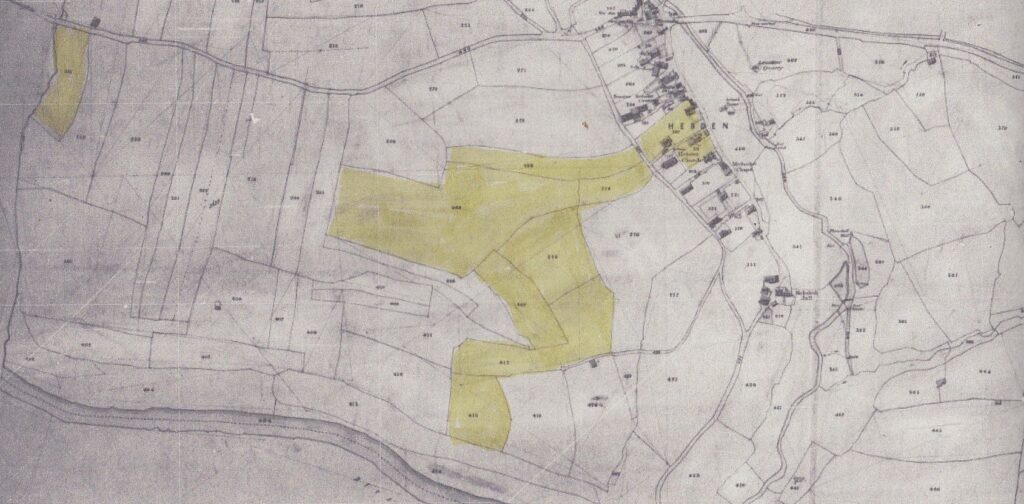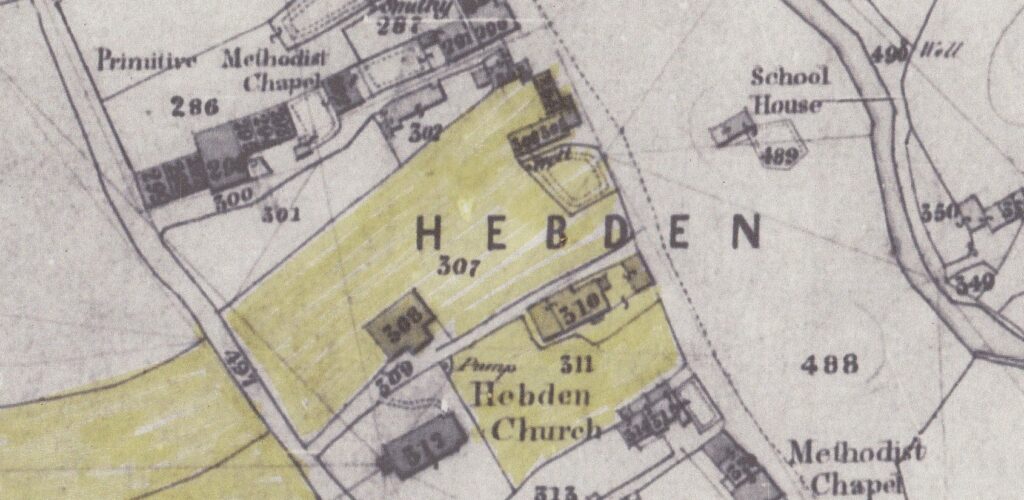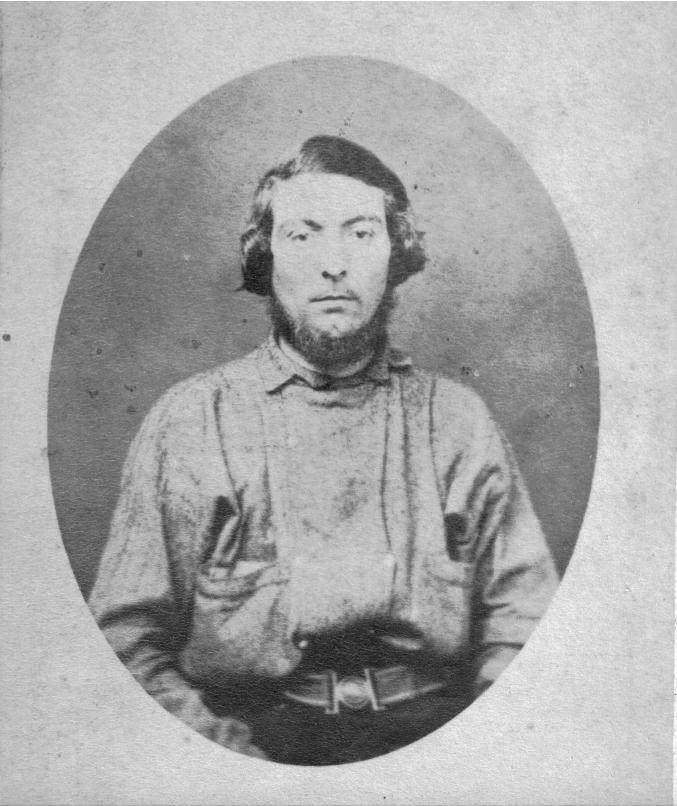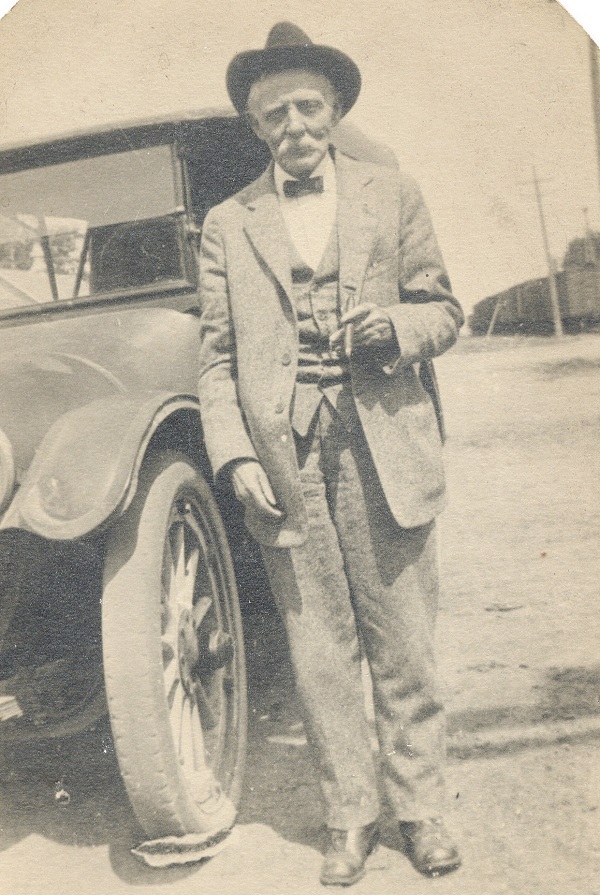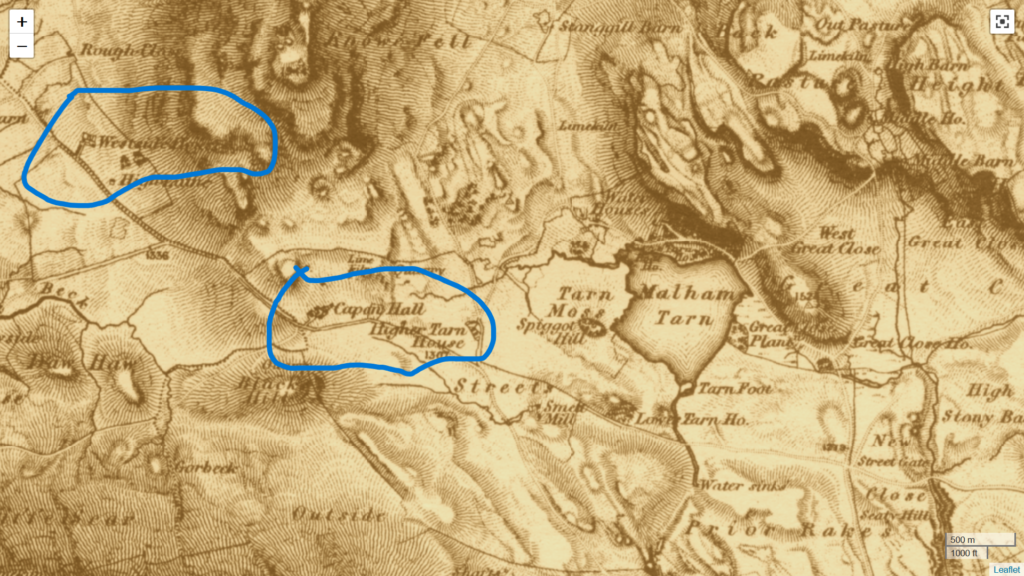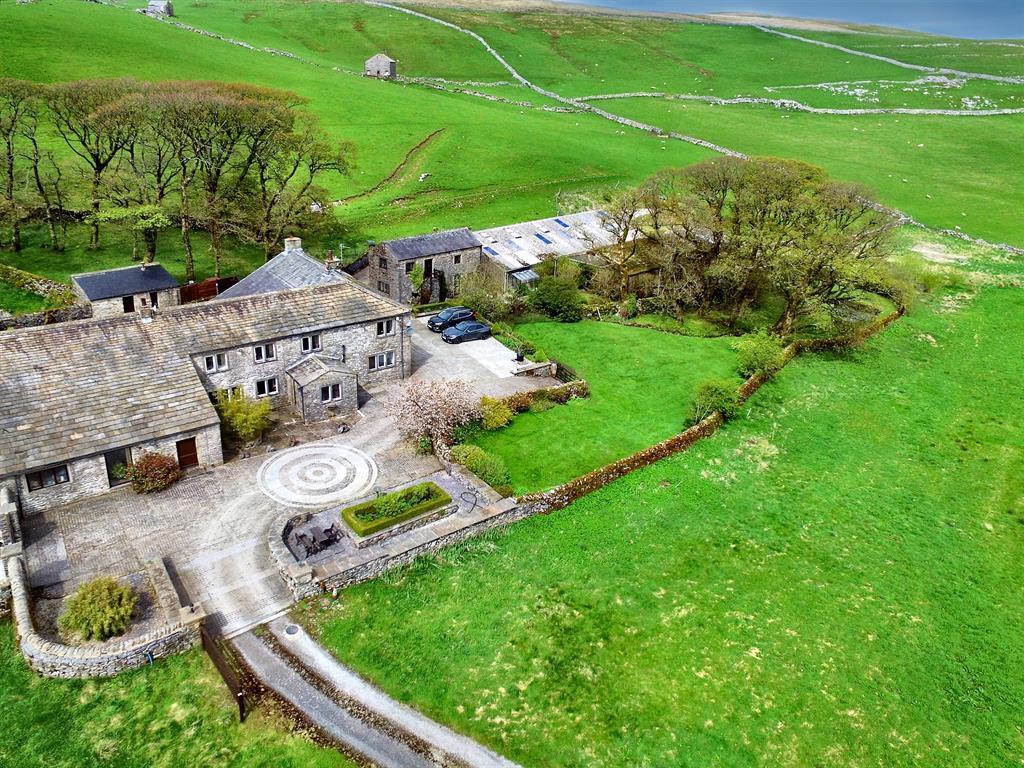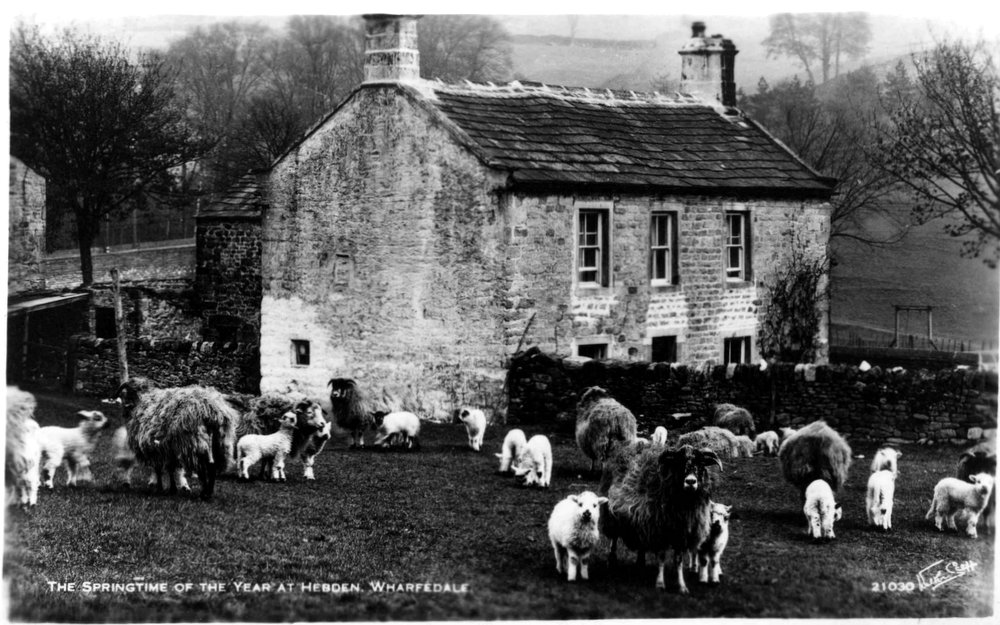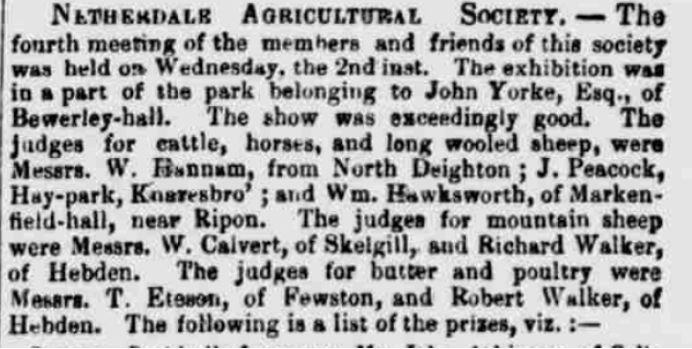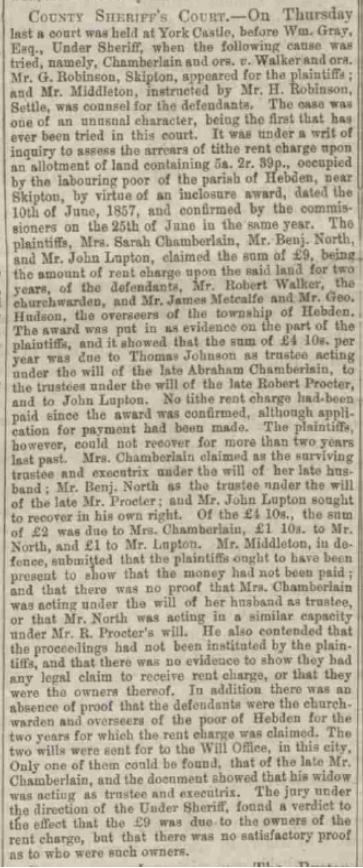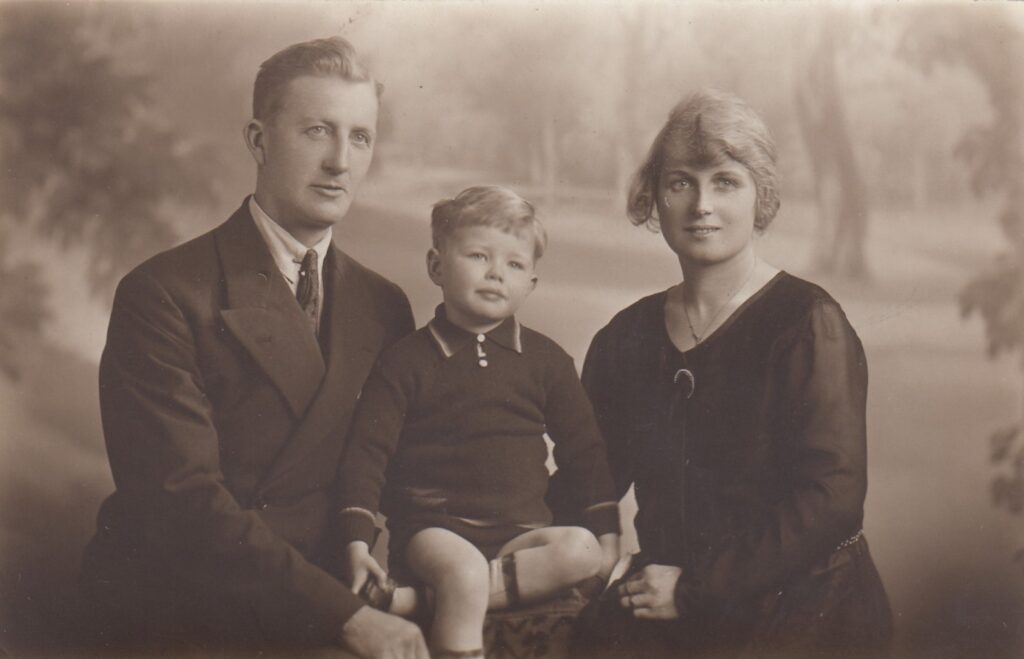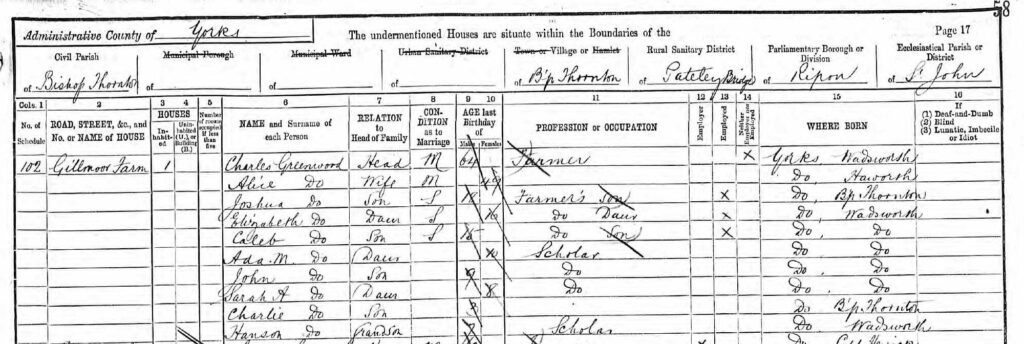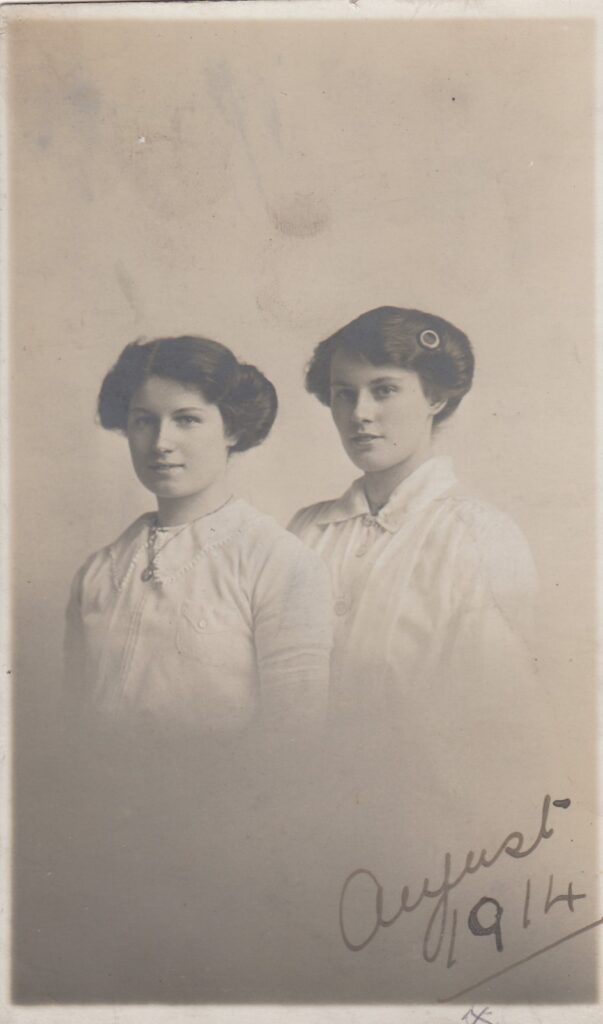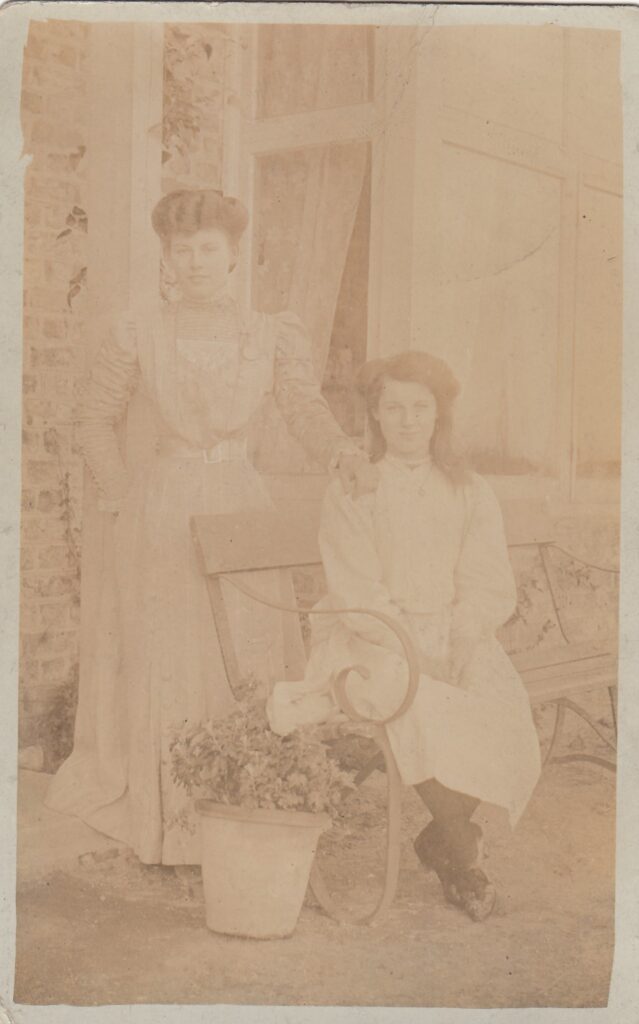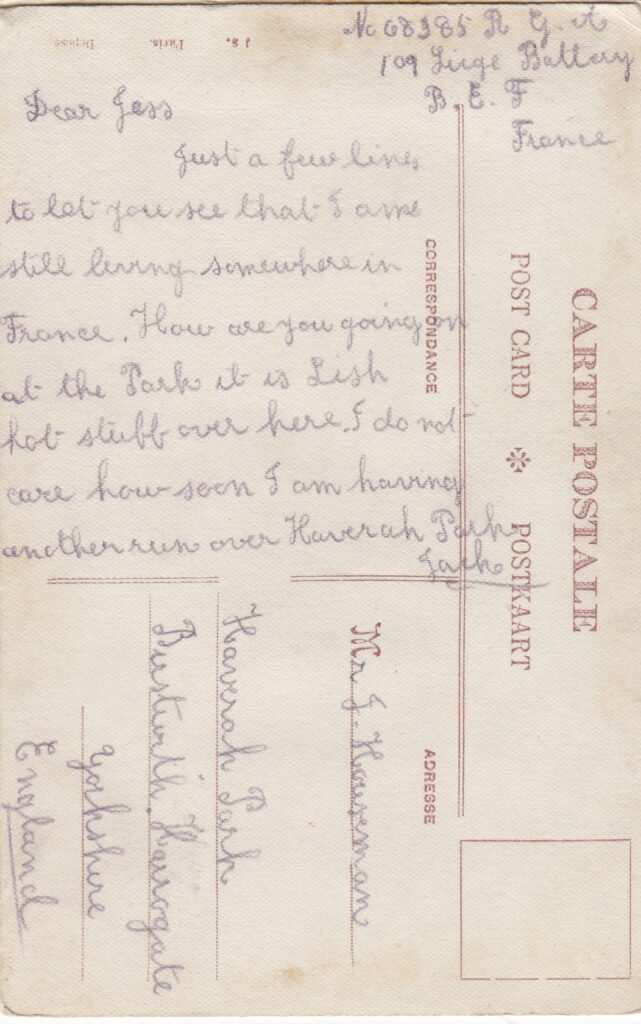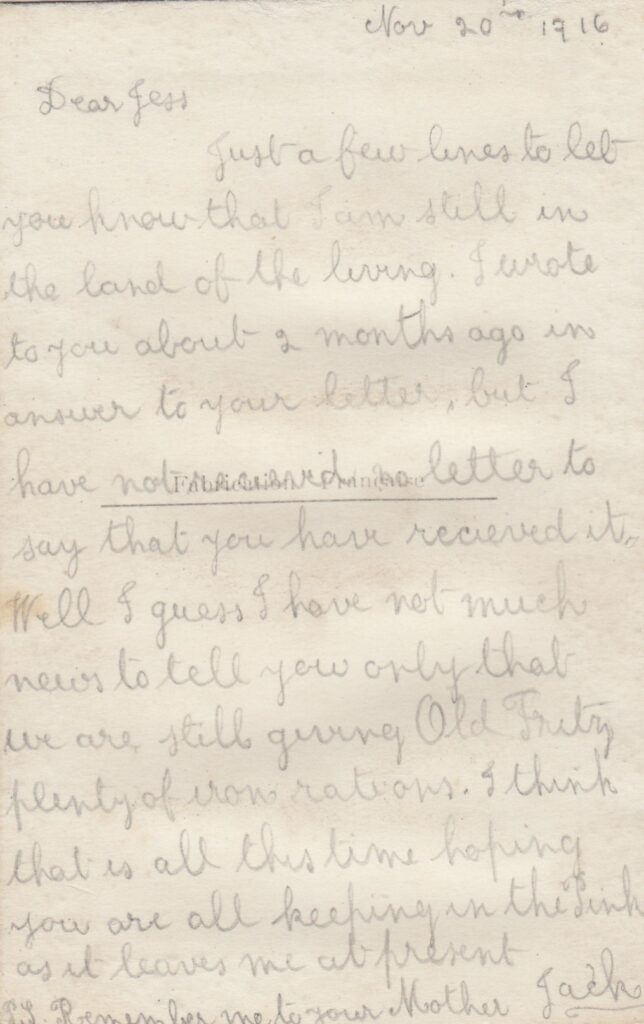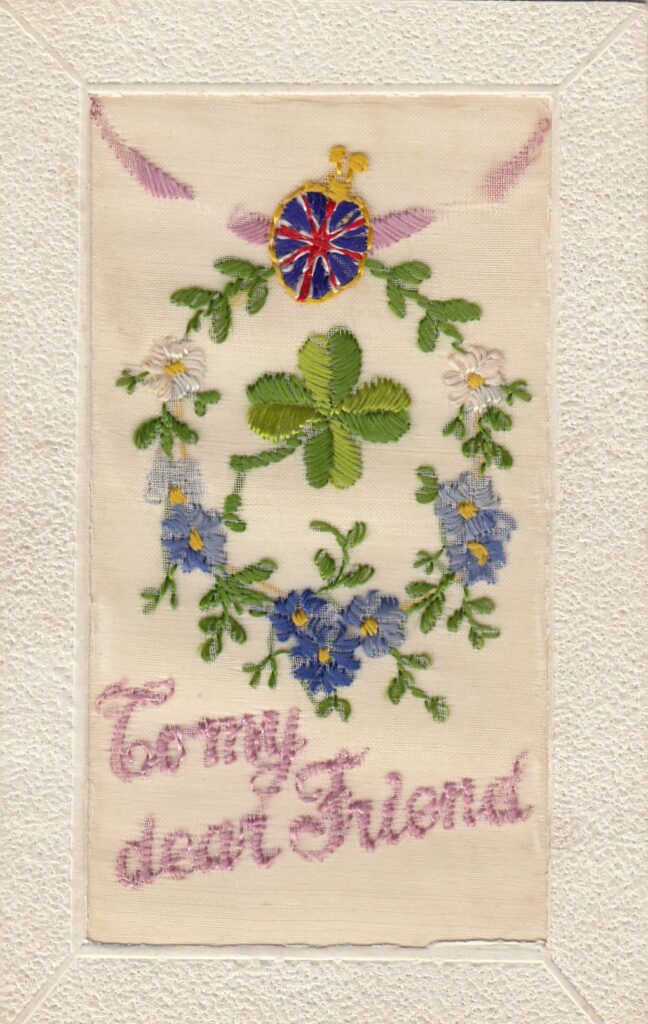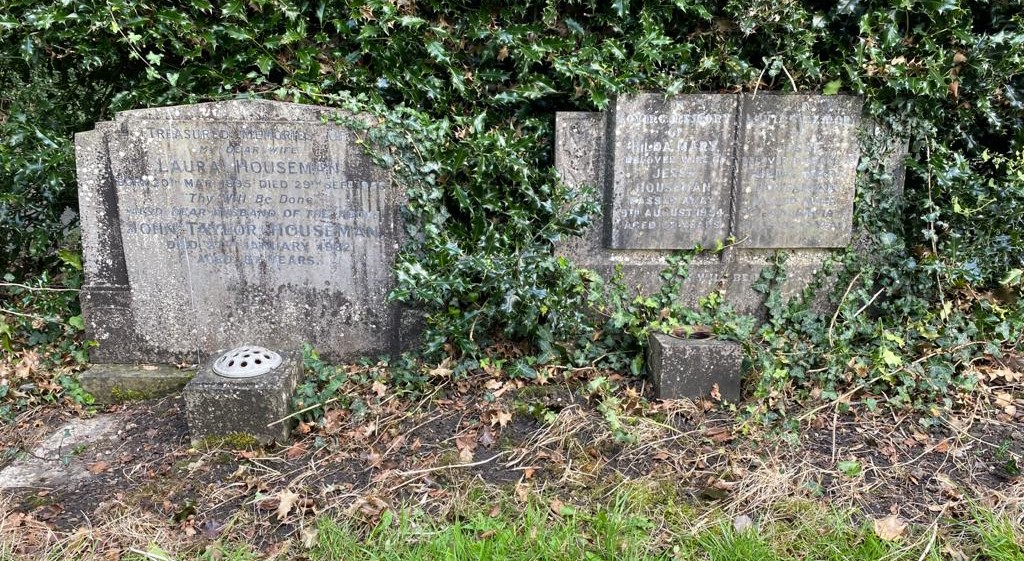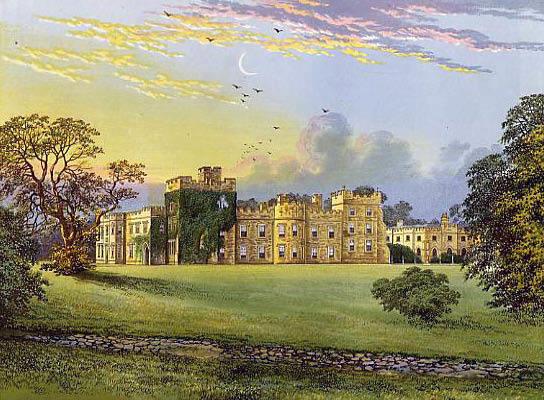
Finally, we reach the last in this series of 3xg grandparents biographies, that of Elizabeth Prout (1822 – 1875) & Thomas Barrett (1820 – 1890), Grandpy’s great grandparents through his father’s father, Henry. Born outside of Yorkshire, to parents with no previous connection to the county they are the couple I think of as being responsible for the almost in “An almost Yorkshire family”. Not that I hold that against them, but is has left me with an almost unanswerable question – why did a woman from Wales and a man from Gloucestershire choose to build their life together in Yorkshire?
It doesn’t help that I am unable to find half the birth certificates for this apparently well-researched family. Nor a reliable marriage certificate. Yet the censuses and other documents all consistently record the same detailed information, down to which property the children were born at. In the end I have decided to focus this blog on what I do know and explore their earlier lives in the future.
Thomas was born c. 1820 in Tetbury, Gloucestershire and Elizabeth c. 1822 in Amroth, Llanelli, Pembrokeshire. By the time Thomas died, in 1890, he had just completed fifty years of service as a gamekeeper for the Dukes of Leeds (the 7th duke succeeded in 1838, the 9th in 1872) and at some date before 1845 must have moved to Hornby Castle, near Bedale, Yorkshire, where the couple were to spend the remainder of their lives. The connection with the estate has to be the best guess as to how the couple met.
Intriguingly, Elizabeth wasn’t the only Prout sister to end up in Yorkshire as Mary, too, married a man from Bedale. I do wonder if Elizabeth had spotted an opportunity for her to work in the big house. Another reason for me to try and find those estate records.
In the nineteenth century, Hornby Castle was simply stunning worthy of being made the main seat of residence for the Dukes of Leeds. It contained all the usual trappings of a major stately home including a detached Banqueting House, no less than three icehouses, an eagle aviary and landscaped parkland as good as any designed by Capability Brown.
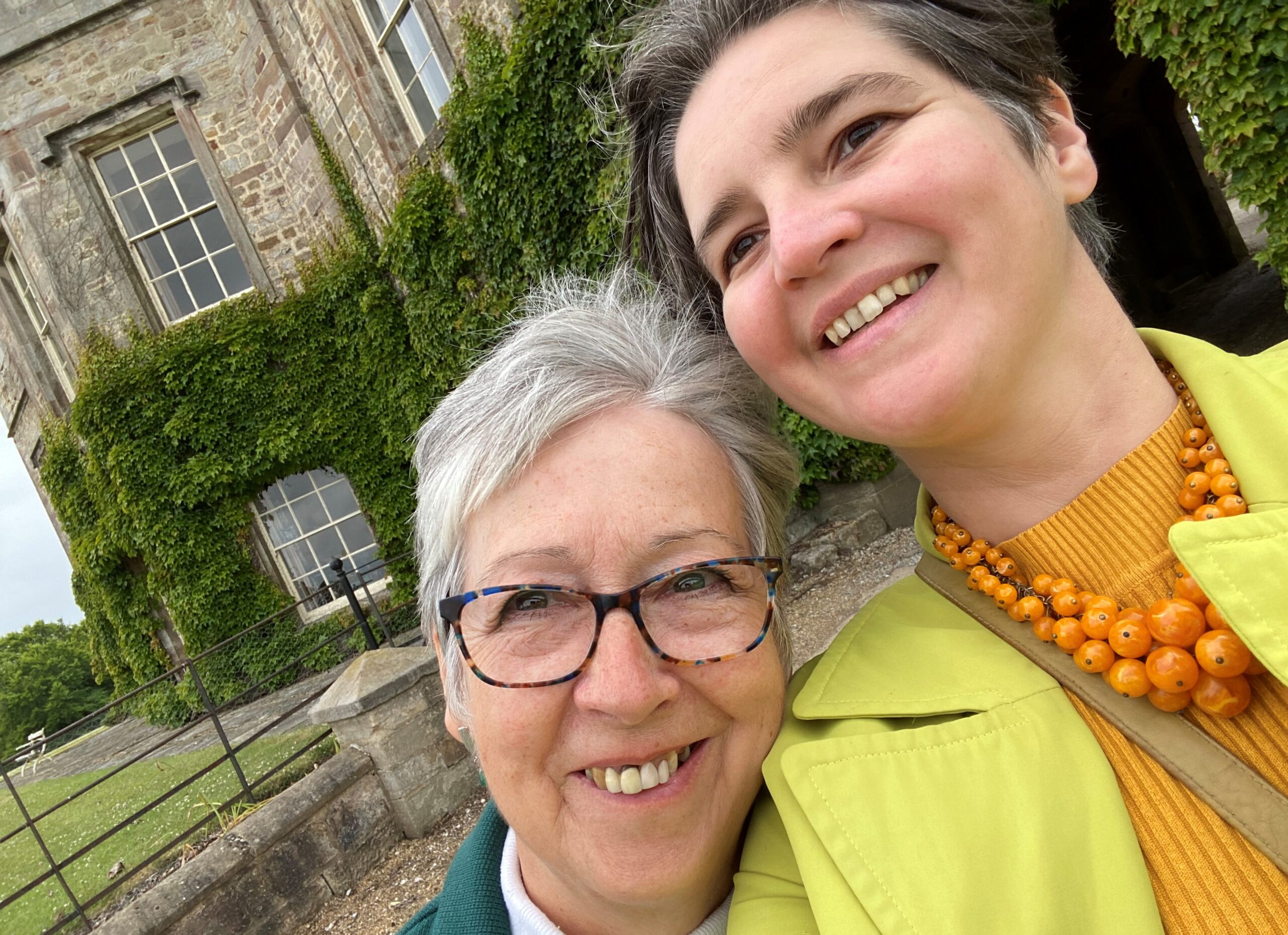
It’s now a shadow of its former self. In 1930, the 11th duke was forced to sell the property after a “no-holds barred baccarat game” in Monte Carlo, more fool him. The house was due to be demolished with the rubble to be used to build roads. Fortunately, one of those tasked with stripping the property thought better, and a proportion was saved. The tower, inner courtyard and a few other remaining parts are now split into several smaller properties.
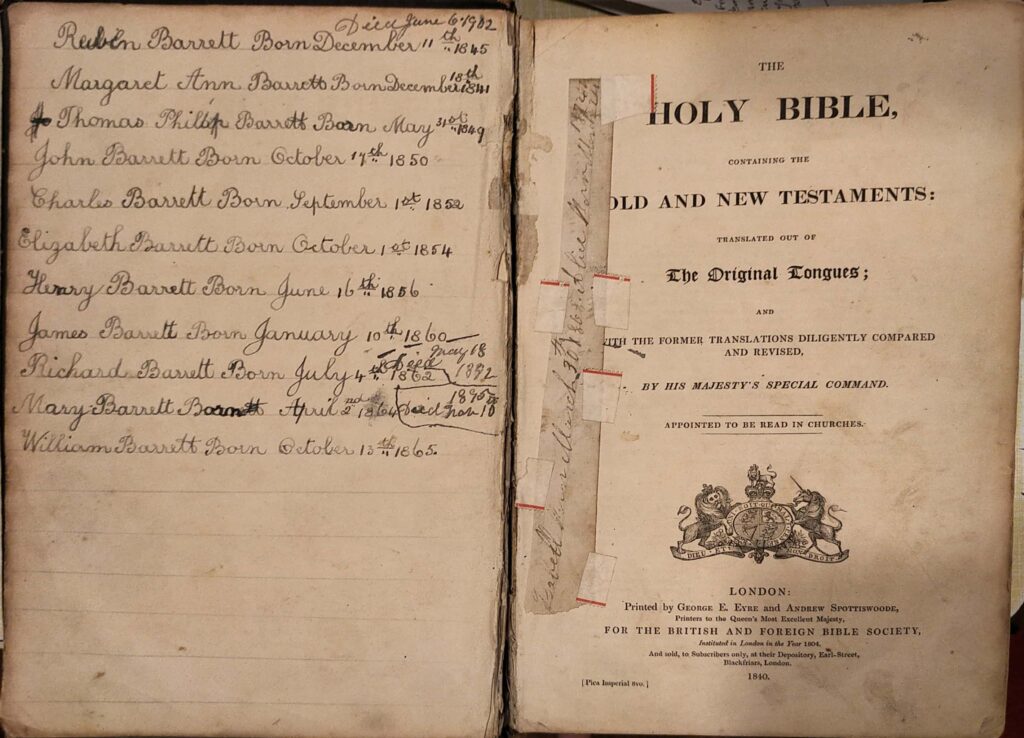
The 1845 date, with which I can start this couples’ story, comes from the birth of their first child, Reuben, who was born at Barn House in nearby Ainderby Miers. Eleven more children followed: Margaret Ann (b. 1847), Thomas Philip (b. 1849), John (b. 1850), Charles (b. 1852), Elizabeth (b. 1854), Henry (b. 1856) (our ancestor), James (b. 1858), James (b. 1860), Richard (b. 1864), Mary (b. 1864) & William (b. 1865).
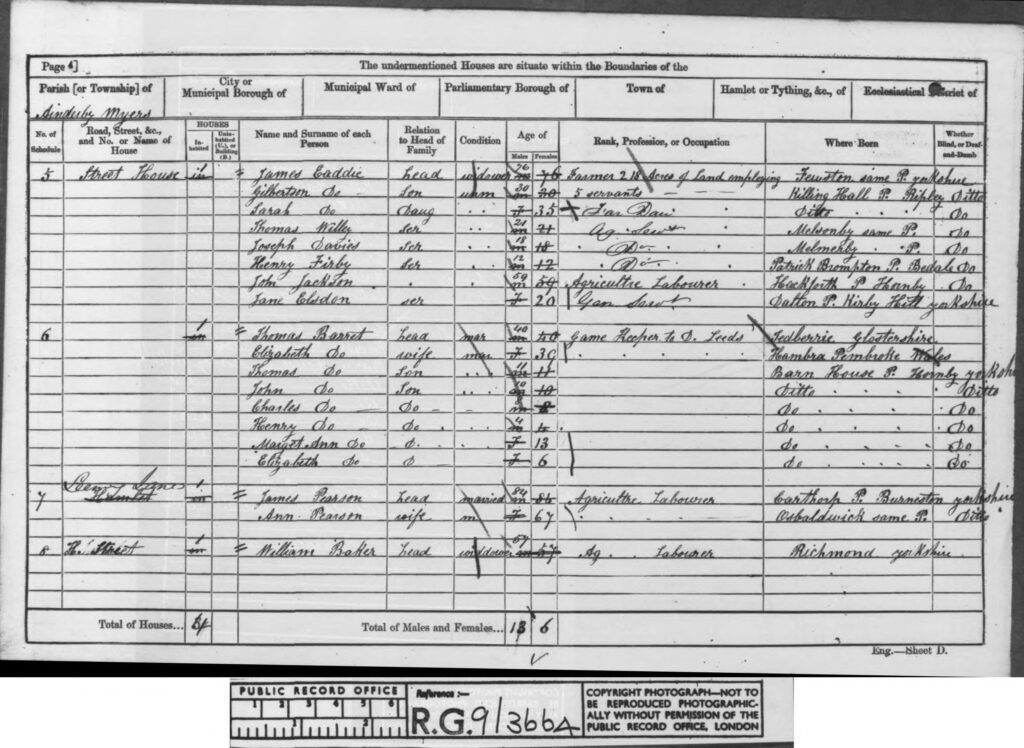
Through the wonderfully detailed censuses we can tell that the family moved to West Appleton at some point between Richard & Mary’s births (4 July 1862 and 2 April 1864).
The 1871 enumerator, Mr Edward Fisher, wasn’t quite as particular in his facts though as his predecessor. For in this census another “daughter” Isabel has appeared on the census. Isabel turned out to be a granddaughter, the illegitimate child of Margaret Ann. Margaret went on to marry and have two more legitimate children, taking her Isabel with her. Alice was not so fortunate. You might have thought the family would have learnt from this necessary deceit, but no, for four years later, Elizabeth, the second Barrett daughter, also had a child, Alice (b. 1872), out of wedlock. Something about being a female servant on a large estate perhaps. Sadly, Elizabeth died in childbirth and Alice too, died young at the relatively young age of twenty-one.
Elizabeth (the daughter) & Alice (the granddaughter) were not alone in dying young for this was not a long-lived clan: The Richmond & Ripon Chronicle was awash with notices for the Barrett children. The two James’s both died in infancy, which would be fairly typical, but then, in what must have been an annus horriblis in 1871/1872, John, Charles and Elizabeth all died as teenagers. Richard & Mary too died relatively young. They outlived both parents only because they were amongst the last to be born for both were barely thirty when they died.
Elizabeth herself was just 53 when she died on 24 September 1875.
Thomas remarried, another Elizabeth, a widow, on 20 December 1876. This second Elizabeth was born in Moffatt, Dumfriesshire neatly bringing Great Britain’s three nations together in one family.
There may well have been a good reason for Thomas to choose another outsider as his second wife for gamekeepers occupied a somewhat controversial position in the Victorian countryside. On the one hand they were one of the more respected senior servants on the estate and developed a deep knowledge of the local countryside. On the other they were the upholders of fiercely contested laws preventing public access to land and to game, regularly required to catch and prosecute poachers who were often their neighbours. Many gamekeepers felt a swift hiding was more effective than bringing the offenders to court, but Thomas seems to be quite a regular at the local petty sessions.
Nor was Thomas always on the right side of the law. The following, lengthy, report details a game trespass claim made against Thomas and his son Reuben. Ultimately the magistrates decided that “as the tenant of the farm had allowed the Duke of Leeds to shoot over the land for a number of years without using the right of letting the shooting himself, and as he had stated that he had a perfect right to the shooting, he not having signed any agreement, they would dismiss the case.” Phew.

The above article also illustrates the strong tradition of gamekeeping being handed down from father to son. Reuben, the eldest, was ultimately to take over his father’s position at Hornby Castle. Henry, our ancestor, moved to work for the Yorke family on their Bewerley Estate at Middlesmoor. Like any profession, the younger training starts, the more skilled an individual could become and in, what was a twenty-four-hour, seven-days-a-week occupation, children with a gamekeeper for a father had a tremendous head start.
And it was a skilled profession. Gamekeepers had to master a variety of countryside skills to raise the game and keep it safe from poachers and vermin. Each gamekeeper developed his own means of doing so and these tips and recipes would be passed on from father to son. I think that’s what this receipt is. It was found in my great uncle Henry Barrett’s papers, but it clearly written in his father, my great grandfather, George Thomas Barrett’s, handwriting. I’d love to think that he, in turn, had inherited from his grandfather, Thomas.
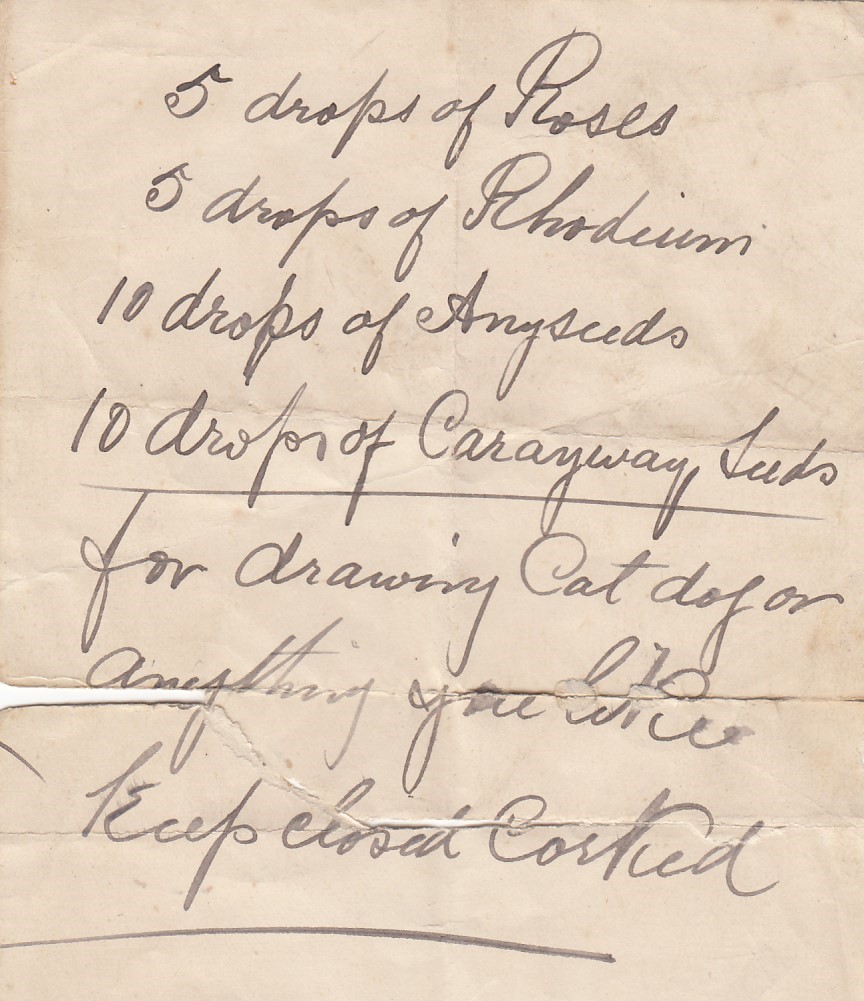
5 drops of Roses, 5 drops of Rhodium, 10 drops of Anyseeds [Aniseed], 10 drops of Carayway [Caraway] Seeds
For drawing Cat dog or anything you like. Keep closed corked.
Gamekeepers, the least violent ones at least, also had to be skilled at handling a wide range of people, from local labourers caught poaching to the highest toffs in the land during major shoots. Thomas, I feel, had this cracked. For after he died, on 7 June 1890, after fifty years of service, his well-attended funeral, was considered of sufficient worth as to have been reported on in detail in none other than the York Herald.
“Funeral of Mr Thomas Barrett, of Hornby Castle – On Tuesday afternoon the remains of Mr T Barrett were interred in the Hornby Churchyard amidst every token of respect. Mr Barrett had just completed a service of 50 years, having been head gamekeeper to the Duke of Leeds the largest portion of that time. Several beautiful wreaths were sent by Mr S T Jones, steward on the Dukes Estate, Mr Nichol, head gardener, Mrs Waters, the housekeeper, and Mr Hutchinson and Mr Hallam of Leeds and others. A very large number of tenants and workspeople on the estate as well as tradespeople and relatives and friends paid their last tribute of respect. The service at the grave and in the church was most impressively read by the Rev D Moore, vicar of Hornby””. (York Herald on 14 June 1890)
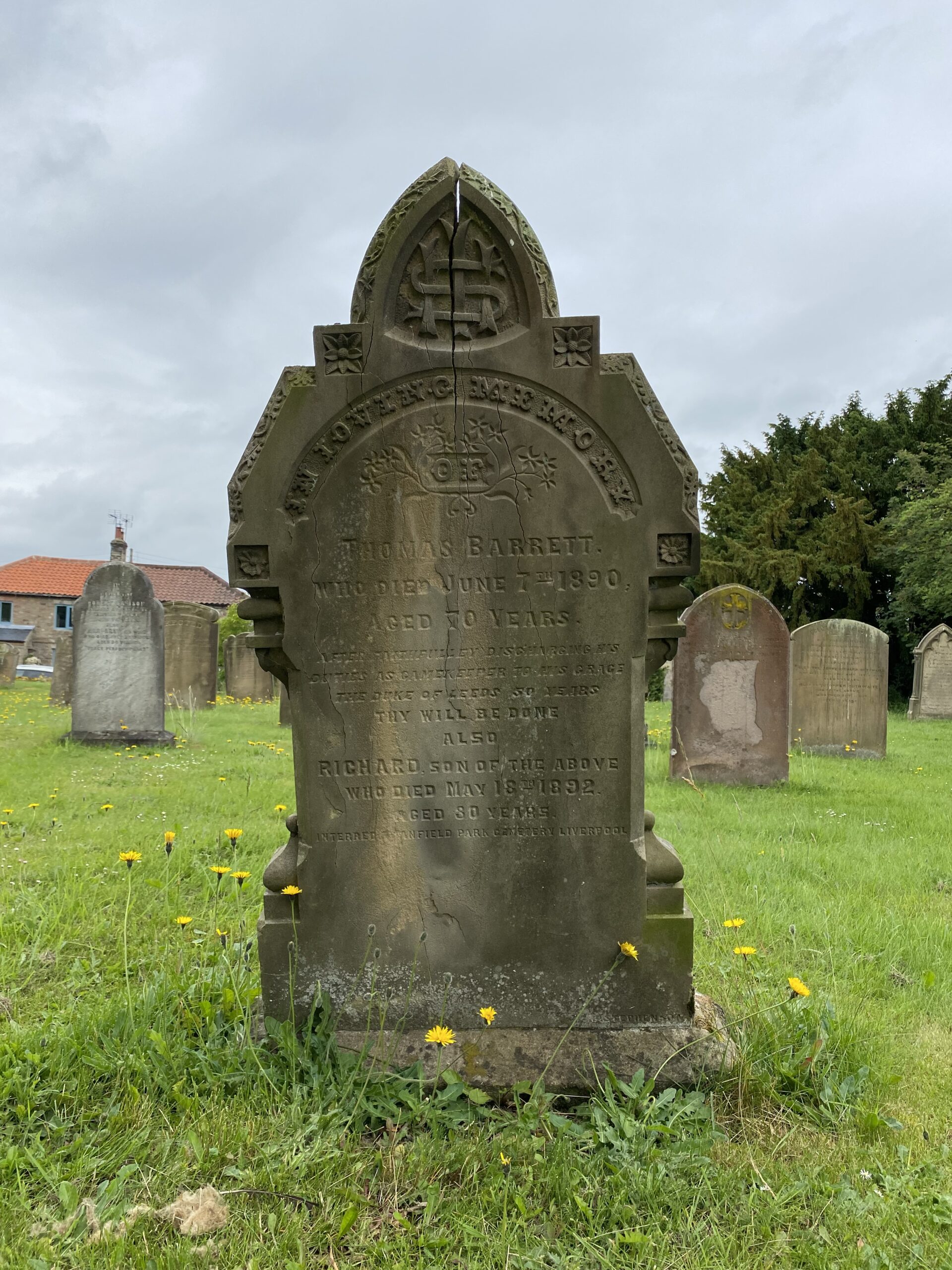
Thus, this series of biographies of our great, great, great grandparents come to an end. Although this not the end of the tales as each one has left me with something new to research.
With much gratitude to all my great, great, great grandparents who have provided me with such a rich range of material through which to get to know them just a little bit better.

